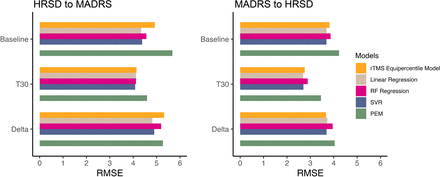“I’m just going to close my eyes for a minute,” I told myself at seven weeks pregnant. It was a Wednesday afternoon, halfway through the workweek, and I had a meeting in thirty minutes. Normally, I would take a quick walk to reset, maybe pour another cup of coffee. But my body was heavy with exhaustion in a way I had never known. Even my bones felt tired. I set my alarm, curled up on the couch, and promised myself ten minutes. Just a quick nap to recharge.
“My body was heavy with exhaustion in a way I had never known.”
Except when the alarm went off, I didn’t wake up. Not until forty-five minutes later. I jolted off the couch, disoriented and angry at myself. I’d missed my meeting. How had this happened? My body had betrayed me — or so I thought.
Before pregnancy, I had spent my twenties and early thirties viewing life through the lens of efficiency. Productivity was my virtue, a tangible way to measure my worth and chase my ambitions. Rest was a reward — earned, rationed, saved for yearly vacations or the occasional Sunday afternoon. When I got pregnant last fall after years of infertility and IVF, I expected morning sickness and food aversions. What I didn’t anticipate was an exhaustion so deep it felt cellular. It settled into my bones, making every movement feel impossible.
“I expected morning sickness and food aversions. What I didn’t anticipate was an exhaustion so deep it felt cellular.”
At first, I fought it. I clung to my routines, drank the controversial second cup of coffee, pushed through fatigue with sheer willpower. Rest, when I allowed it, came in stolen moments — a quick scroll through social media, a few minutes with my eyes closed in the car before running an errand. But no matter how hard I tried, I couldn’t override the exhaustion. It was insistent, immovable. And slowly, reluctantly, I began to listen.
Now, in my third trimester, I can look back on those early weeks and see how they reshaped my relationship with rest. For so many of us, rest has been framed as indulgent, something to be earned. This is especially true for those of us shaped by hustle culture, where worth is measured by output and success by how much we can cram into a day.
And so we push. We stay up late, wake up early. We hide the exhaustion with eye masks and caffeine. We fill every spare moment with something productive, convinced that slowing down is weakness. Why would I just sit still and rest? Why would I linger? There would be nothing to show for it.
“What if rest isn’t the enemy of productivity but the foundation of it?”
But lately, I’ve been wondering: What if rest isn’t the enemy of productivity but the foundation of it? What if true resilience isn’t about pushing past exhaustion, but recognizing when to stop?
I think about the way nature moves through seasons — how trees shed their leaves in winter, how animals hibernate, how the earth itself slows down to prepare for renewal. There is no shame in this slowing. It is both necessary and wise. And yet, when it comes to ourselves, we resist the very rhythms that sustain life. We push through, even when our bodies beg us to pause. Even when the most natural thing we could do is honor those rhythms instead of fighting them.
While rest is a privilege, it is also a necessity. It is one of the most radical acts of self-care. It is simply listening — to my body, to my intuition, to the quiet voice inside that says, “It’s okay to stop.” Rest is not weakness. It is not laziness. It is an act of self-preservation, of self-respect. It is the fuel that allows us to show up fully — not just for our work, but for our lives.
“Rest is not weakness. It is not laziness. It is an act of self-preservation, of self-respect.”
And here’s another thing I’ve learned: The world keeps turning when I take a nap. My inbox will still be there when I log off. The dishes, the laundry, the endless to-do list—they can wait. But my body, my health, my wellbeing? These are not things I can afford to neglect. Because at the end of the day, I don’t want to be remembered for how much I got done. I want to be remembered for how well I lived. I deserve that much — and so does my unborn daughter.
So, to those who feel guilty stepping away, who measure their worth by what they accomplish — I see you. I know how hard it is to rest in a world that glorifies the grind. I know the tension between needing to pause and feeling like you should be doing more. But hear me when I say this: We are not meant to run on empty. We are not machines.
“We are not meant to run on empty. We are not machines.”
We are allowed to pause. To breathe. To rest. And not because we’ve done enough to earn it, but because we are human.
Pregnancy may be the reason I rest right now, but it has also taught me that I can choose rest before I reach the point of exhaustion. Even when I feel like my productive self again, I deserve to take deep breaths, to fill my days with both work and play. We all do.
Kayti Christian is a Senior Content Strategist at The Good Trade. With an MFA in Nonfiction Creative Writing, her work has appeared in TODAY, Shondaland, and The New York Times. Since 2017, Kayti has been uncovering and reviewing the best sustainable home brands and wellness products. Her personal journey through four years of fertility treatments has inspired her to write extensively about women’s healthcare and reproductive access. Beyond her work at The Good Trade, Kayti is the creator of Feelings Not Aside, a Substack newsletter with 6,000 subscribers, and the cohost of the FriedEggs Podcast, which delves into IVF and infertility.


